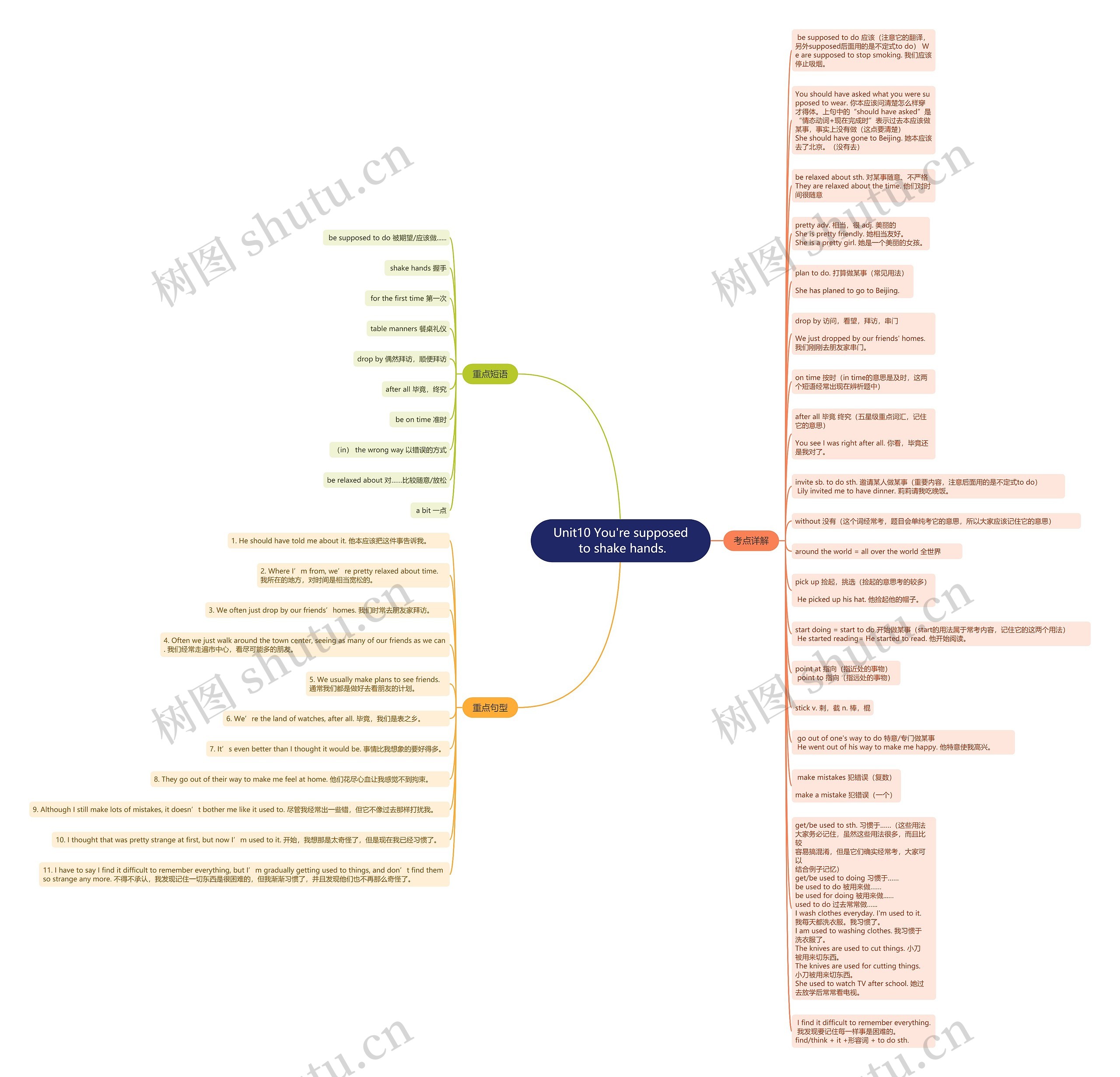be supposed to do 应该(注意它的翻译,另外supposed后面用的是不定式to do)
We are supposed to stop smoking. 我们应该停止吸烟。
You should have asked what you were supposed to wear. 你本应该问清楚怎么样穿才得体。上句中的“should have asked”是“情态动词+现在完成时”表示过去本应该做某事,事实上没有做(这点要清楚)
She should have gone to Beijing. 她本应该去了北京。(没有去)
be relaxed about sth. 对某事随意、不严格
They are relaxed about the time. 他们对时间很随意
pretty adv. 相当,很 adj. 美丽的
She is pretty friendly. 她相当友好。
She is a pretty girl. 她是一个美丽的女孩。
plan to do. 打算做某事(常见用法)
She has planed to go to Beijing.
drop by 访问,看望,拜访,串门
We just dropped by our friends' homes.我们刚刚去朋友家串门。
on time 按时(in time的意思是及时,这两个短语经常出现在辨析题中)
after all 毕竟 终究(五星级重点词汇,记住它的意思)
You see I was right after all. 你看,毕竟还是我对了。
invite sb. to do sth. 邀请某人做某事(重要内容,注意后面用的是不定式to do)
Lily invited me to have dinner. 莉莉请我吃晚饭。
without 没有(这个词经常考,题目会单纯考它的意思,所以大家应该记住它的意思)
around the world = all over the world 全世界
pick up 捡起,挑选(捡起的意思考的较多)
He picked up his hat. 他捡起他的帽子。
start doing = start to do 开始做某事(start的用法属于常考内容,记住它的这两个用法)
He started reading= He started to read. 他开始阅读。
point at 指向(指近处的事物)
point to 指向(指远处的事物)
go out of one's way to do 特意/专门做某事
He went out of his way to make me happy. 他特意使我高兴。
make mistakes 犯错误(复数)
make a mistake 犯错误(一个)
get/be used to sth. 习惯于……(这些用法
大家务必记住,虽然这些用法很多,而且比
较
容易搞混淆,但是它们确实经常考,大家可
以
结合例子记忆)
get/be used to doing 习惯于……
be used to do 被用来做……
be used for doing 被用来做...…
used to do 过去常常做…...
I wash clothes everyday. I'm used to it.
我每天都洗衣服。我习惯了。
I am used to washing clothes. 我习惯于
洗衣服了。
The knives are used to cut things. 小刀
被用来切东西。
The knives are used for cutting things.
小刀被用来切东西。
She used to watch TV after school. 她过
去放学后常常看电视。
I find it difficult to remember everything. 我发现要记住每一样事是困难的。
find/think + it +形容词 + to do sth.

